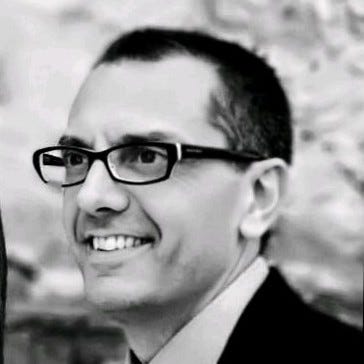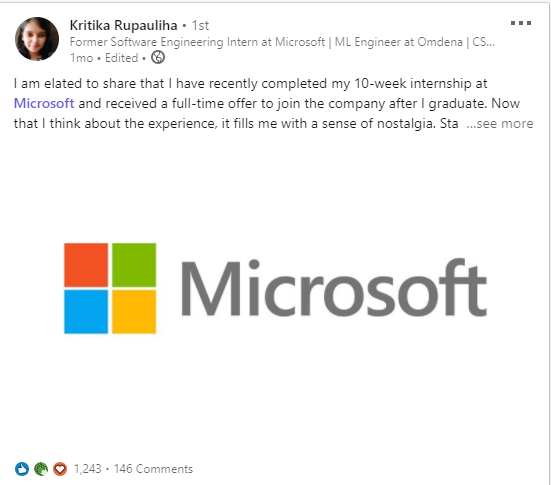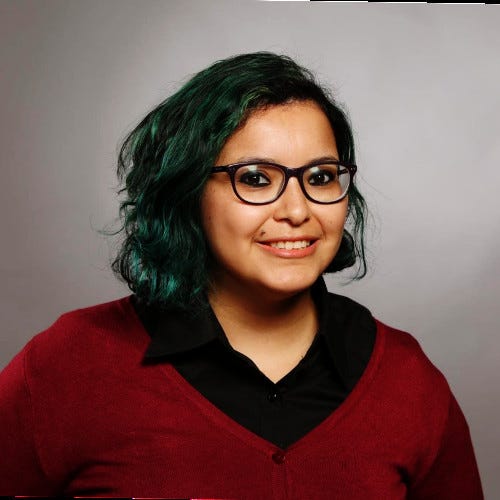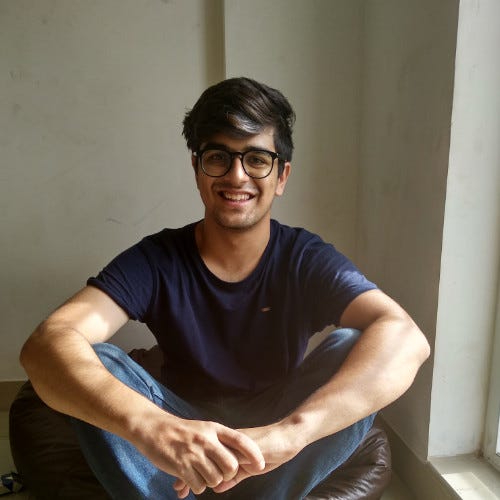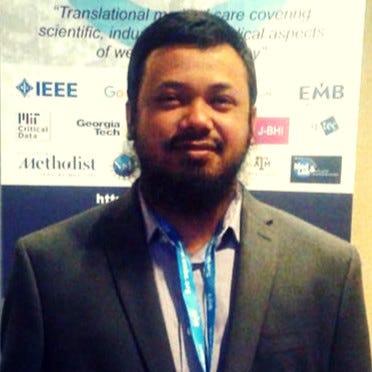How to Transform Your Data Science Skills and Build a Meaningful Career
Learn how to build a meaningful data science career through real-world collaboration, soft skills, and purpose-driven projects that drive impact.

June 4, 2022
7 minutes read

Data Science is a hot field and will remain as such with new roles evolving. More and more companies are realizing that in order to stay relevant in the future they need to become data science career-oriented organizations.
Great breakthroughs have happened with machine learning models helping to detect fake news, spotting diseases like malaria, building inclusive financial systems, and many more.
But data science is also a very diverse field — not only in terms of knowledge but also in terms of people, domains, and careers. This very diversity of ideas and individuals can make it a huge success. However, there are several obstacles along the way.
To overcome problems such as algorithmic bias, safety, and trust issues, and silo-driven development practices, we need to embrace all that humanity has to offer. To learn skills that are relevant in an inclusive workplace, we at Omdena are happy to turn toward online education with plenty of great resources to learn to code, dive into machine learning, and hackathons and competitions that will help to improve your modeling and analysis skills.
But what is missing, are skills that are not only about technical prowess, like Machine Learning, Data engineering, Visualization, Programming, Domain expertise, etc.
Even the most technically skilled data scientist needs to have the following soft skills to thrive today. All of which you can only learn through hands-on practice.
Collaboration, Cultural empathy, Creative thinking/problem solving, Initiative, Presentation skills
This is what a meaningful career means. This is what being a next-level data science engineer or data scientist means — A career where one is part of something that is bigger than oneself. The world’s biggest challenges can only be solved when people from diverse backgrounds with various skills and perspectives come together to bring out the best.
“Do not optimize for income only but for passion, for where you really want to make a difference.” — influencer Eric Weber in one of our webinars.
Our mission is to democratize AI not just by talking but by the means of purpose-driven action and collective intelligence.
The Japanese call this Ikigai (生き甲斐) — “a reason for being. The thing that gets you up in the morning”.
The people who are doing it
In the following, six individuals from various backgrounds — career movers, a Professor at ESADE, a Postdoc in Physics, a data engineer, a researcher, and a student — sharing their experiences in working in Omdena´s real-world projects.
Adapting careers
Professor Xavier has been involved for a long time in Business analytics and consulting. He took a step further in his career when he earned a Masters’s degree in Business Intelligence and Data Science. He joined Omdena´s disaster management project with UN WFP.
According to him, “(1) Doing AI for Good (2) on a global scale (3) and with a global team” were the 3-ingredient salad that made him want to participate in the project. He improved significantly his data engineering skills, tools for feature importance analysis, hyperparameter tuning, and cross-validation techniques and learned a lot about neural networks. He also improved skills in Python and in using libraries such as Scikit-Learn and visualization libraries such as Seaborn.
“I also learned that it doesn’t matter if you try something that maybe later it’s not part of the pipeline of the project. It’s part of the learning process.“ – Professor Xavier
When asked about soft skills, Professor Xavier states that he improved his team management skills, mainly because he was part of a very diverse team with different cultures and backgrounds at Omdena. A very crucial aspect that he learned was to swim in a world of chaos at the beginning of a project and be willing to be patient for things to come into place later, with clear tasks and responsibilities.
“There is a lot of smart people out there willing to help and to make good using AI. Being part of such a community like that makes me proud of it. Makes me want to share it with my relatives and friends.” – Xavier Torres Fatsini
From Omdena to a full-time offer at Microsoft
Kritika Rupauliha is a CS undergrad, currently in the 6th semester of her degree. She has worked at organizations like Leading India AI, Reflex Solutions LLP, Omdena, IIIT Allahabad, and Microsoft as an intern.
At Omdena, she worked her way up from Junior ML Engineer to the Lead ML Engineer of a project. This was her first time managing a task with a large number of globally diverse participants. According to Kritika, by participating in an Omdena project, she learned to balance between empowering people to take their own initiative and get things done, while at the same time setting goals to keep the overall task on track. She also gained valuable skills in clear and regular communication, especially while working remotely. She learned to manage work for Omdena, her day job, and family commitments, and also to manage notifications appearing round the clock because of the global nature of the collaboration.
“Before joining Omdena, I had been involved in some research work and college projects under my professors. But I had never been exposed to such a big community of similar-minded individuals. I found out that I thrived in such a community, learning with my peers, and exploring the horizons of AI. Omdena is also the reason why I got selected for a software engineering intern at Microsoft.” – Kritika Rupauliha
For Kritika, being around experienced professionals and learning from them was the best thing, and they went on to become close friends who will always mentor her in her future endeavors. She learned valuable communication skills for which she credits her projects at Omdena.
We congratulate Kritika for bagging a full-time offer at Microsoft!!
Leading teams at Omdena
Rosana de Oliveira Gomes is an inspiring Astrophysicist who is now a Lead Machine Learning Engineer at Omdena.
Rosana improved her leadership and “communication to non-scientist” skills and increased her multicultural experience by working with collaborators from three continents for the first time.
“I feel more connected with the world after speaking every day with people from all over the world in order to build something together. I also feel more confident and valued (before the experience at Omdena I have suffered from bullying at the workplace and this really helped me to rebuild my confidence in my skills.” – Rosana de Oliveira Gomes
No need to have perfect knowledge
Marek Cichy got his Masters’s degree in the Portuguese language and culture and spent 10 years professionally working as a Polish-Portuguese/Spanish translator and interpreter. He wanted to shift to being an NLP specialist. He tells us that before joining Omdena, he felt he had a lot of hurdles to jump over and impostor syndrome was haunting him. He initially felt quite overwhelmed with all the maths and programming he had to learn.
But after joining Omdena, he realized a few things which immensely boosted him. Let’s listen from him:
“I don’t need to have perfect knowledge in all the above-mentioned areas to contribute in a valuable way to a project like this”“Compared with other participants, even ones with a “better” curriculum, I didn’t feel I was lagging behind, and definitely the atmosphere in Omdena projects is really positive and non-toxic”“I realized my domain knowledge (e.g. speaking Polish in the Omdena+SexEdPL project) is an equally valuable resource as ML knowledge is”“I always thought I’m not good at managing other people, but I discovered that in a positive environment I’m able to do it.”
Marek also says that he met such a diverse group of people who greatly expanded his network, and got to work on a real-world problem that can now help him in job interviews.
Data engineering & finding like-minded people
Raghuveer is an IT professional working as a Platform Engineer to provide an intelligent platform to investigate fraudulent activities. He was interested in the field of data science, machine learning, and AI since his college days. Before Omdena, he was working with small pet projects, but couldn’t apply it on a large scale. He also didn’t get to interact much with the data science community before. According to Raghuveer, working with Omdena helped him in several ways and transformed his data science career:
- Working on a large scale project (end to end) for the first time.
- Developing data munging/collection skills via scraping
- Building “people” skills as he got to interact with almost +25 people
Working through passion
Juber Rahman is a researcher in the field of Electrical and Computer Engineering turned Data Scientist who believes in the power of passion.
“I believe a person performs the best when he or she is passionate to solve a problem. Very few organizations (e.g. Omdena) can ignite the passion in you. Most organizations make it feel an obligation to do something rather than creating a drive to solve a meaningful problem.”
Juber started learning advanced model development combining multiple models as part of his project at Omdena. He says the most important thing he learned was to accept and tolerate disagreement with fellow workers.
Our mission is not only to help in solving real-world problems but to transform data science career in the process too. We are happy about each success story as part of our community-driven work. The way we solve problems is changing, and we all are witnessing the dawn of a new era — one where collaboration matters more than competition.

